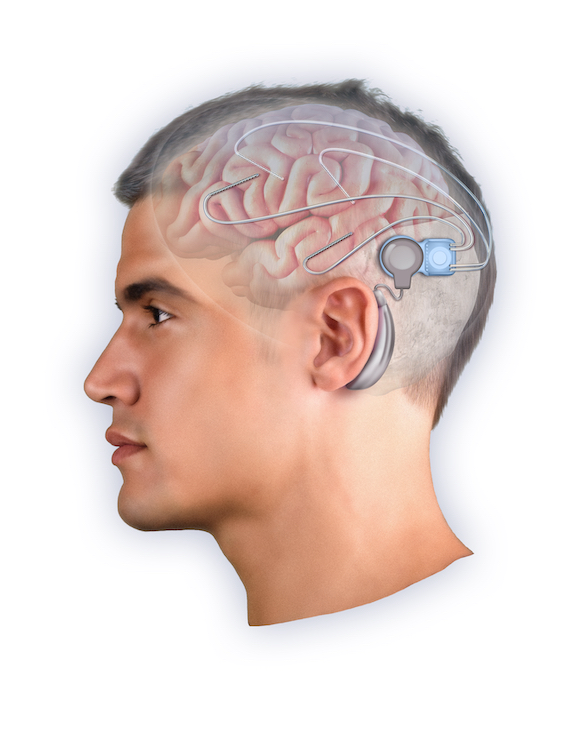When providing therapy to patients with traumatic brain injury, the key is listening to the mind, says neuroscientist Dan Rizzuto.
“Memory is not just located in one part of the brain. It’s actually a distributed network effect [called nodes]. What you need to do is to listen to all these nodes simultaneously — listen to the orchestra, for instance — as it’s playing,” Rizzuto said. “When you start hearing that one element that’s out of tune, you can use stimulation in that moment like a conductor will wave his wand to bring the note back into synchrony with the rest of the orchestra.”
CEO Rizzuto and Scientific Advisory Board chair Mike Kahana are the founders of Center City-based biotech company Nia Therapeutics, which is developing an Advanced Neurostimulation System to stimulate memory for patients with traumatic brain injury.
In July, Nia acquired a chip from California company Cortera Neurotechnologies to help solidify an algorithm used to determine timing for therapy. In addition to finding where to stimulate the brain, the algorithm, developed by researchers at the University of Pennsylvania and clinical collaborators including the Mayo Clinic, deduces the exact moment to deliver stimulants and return the brain to a “good memory state.” This differs from traditional therapies for diseases such as Parkinson’s, which requires continuous stimulation.

“It turns out that a lot of that variability of what determines whether or not you’re going to remember something is endogenous in the brain itself,” Rizzuto said. “The brain is constantly trying to juggle a lot of different demands, and it’s not always prioritizing memory at the right time. … We developed this idea based on brain simulation to nudge the human memory system when it’s in a bad state back into a good state.”
Though the company was officially started in 2014, Rizzuto said the roots of the project go back decades, when he was a student and Kahana a young professor at Penn. In 2014, Kahana received $23 million from the Defense Advanced Research Projects Agency (DARPA) through its Restoring Active Memory (RAM) project to develop the technology, and Rizzuto moved across the country to build up the company. He spent the last few years working as project director for the RAM project at Penn before leaving in January 2018 to be the full-time CEO of Nia.
“Veterans have a large burden of traumatic brain injuries due to their experiences in the military,” Rizzuto said. DARPA, being a military agency, “was very interested in moving forward developing novel therapeutics to treat patients with brain injuries.”
The company raised its first private investor capital in November — SEC filings report a raise of $850,000 — and has a meeting with the FDA in September to review its treatment plans and hopefully get the product to market, the CEO said, and a prototype will be ready in the next few months.
The first clinical target will be patients with impairment due to moderate to severe traumatic brain injury. But Rizzuto said his team hopes to develop the technology to treat other patients whose memory impairment issues led them to leave work and forget their families.
“On our roadmap we have mild cognitive impairments, as well, and even Alzheimer’s disease. These are really debilitating, degenerative diseases of the nervous system with no good treatments right now,” Rizzuto said. “We’re hoping to do our part to make these disorders and injuries more bearable.”







